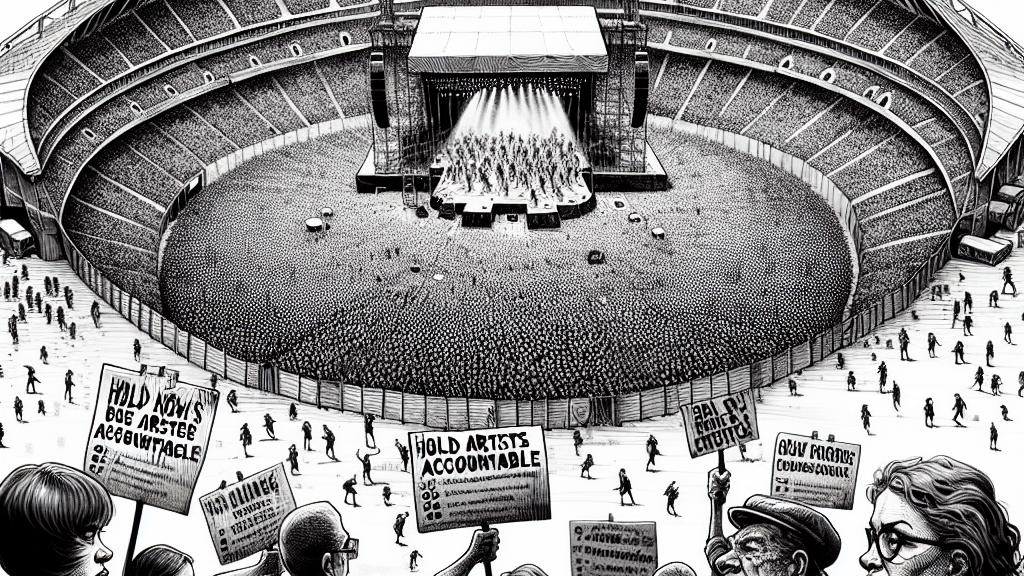Debate on Gender-Based Violence Ignited by Chris Brown's Concert in South Africa
Overview
- Chris Brown's concert incites significant backlash due to his history of violence against women.
- Activists warn that his performance sends a harmful message in a country facing gender-based violence crises.
- A rapidly growing petition against the concert reflects deep societal concerns and calls for accountability.

Concert Controversy in Johannesburg
In South Africa, Chris Brown's eagerly awaited concert at the FNB Stadium has become a focal point for passionate debate and public outrage. This stems from his well-documented history of violence, which casts a shadow over the excitement of fans. With the stadium's 94,000 seats selling out in a flash, it’s evident that many supporters are thrilled. However, this fervor clashes with the perspectives of many activists who feel deeply unsettled. As Sabina Walter, executive director of Women for Change, passionately states, inviting an artist like Chris Brown—known for his abusive past—sends a troubling message in a nation plagued by gender-based violence (GBV). The facts are staggering: South Africa has one of the highest rates of femicide in the world, and a woman is raped every twelve minutes. These dark realities fuel a petition that has accumulated over 20,000 signatures, illustrating a considerable community demand to hold artists accountable for their actions.
Understanding Gender-Based Violence in Context
The backdrop of gender-based violence in South Africa amplifies the concerns surrounding Chris Brown's concert. GBV rates are not mere statistics—they tell heart-wrenching stories of fear and suffering. South Africa's statistics reflect a crisis: nearly one in three women will face violence in their lifetime. According to UN Women, a shocking 736 million women experience physical or sexual violence globally. Given this context, allowing a performer with a history of such behavior a platform feels not only reckless but also dangerous. Critics assert this normalizes violence and diminishes survivors' experiences. By celebrating Brown, society risks ignoring the systemic issues that perpetuate a culture where abuse is excused or minimized. The alarmingly short intervals at which sexual violence occurs in South Africa further bolster the call for immediate social reflection and a shift in how the entertainment industry engages with problematic figures.
Diverse Perspectives within South African Society
The differing viewpoints regarding Chris Brown's concert illuminate the complexities of South African society's approach to celebrity culture and accountability. On one side, you have individuals like Prof Mamokgethi Phakeng, who insists that one can enjoy music independently of the artist's past. She argues, “Music transcends the individual,” advocating for a separation of art from the artist's actions. Yet, this viewpoint has garnered criticism for brushing aside the core issue: How do we reconcile enjoyment of art with the unspeakable acts of violence? Critics argue this mindset trivializes the gravity of GBV, suggesting that enjoying such performances only perpetuates a culture that tolerates abusive behavior. The ongoing conversation is not just about Chris Brown; it underscores a critical need to address how the entertainment industry can and should take responsibility for the artists they promote. In doing so, society embarks on a crucial journey towards fostering a culture that prioritizes safety, accountability, and ultimately, healing for survivors of violence.

Loading...